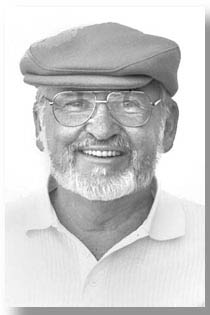I was just watching a panel presentation on the energy problem and how it might be resolved. This panel had big people on it, (including an Assist Secretery of Energy), and was discussing big solutions that would cost big money and require big legislative approvals.
Let me diverge here for an anecdote.
If you were to have a traffic congestion problem, (people moving), the solution would be determined by what kind of expert you hired to suggest a solution. A Highway Engineer would recommend additional lanes. A Transportation Planner would suggest mass transit. A Sociologist would point to developing car pools. And a Land Use Planner would recommend locating housing close to the jobs.
In the instance of the energy panel above, all the participants represented important players in energy industries, (including alternative and renewable sources) and government. It might be expected that they would all suggest large scale solutions.
But imagine what a different panel might recommend. Residential rooftop units tied into individual property generation alternatives. Might not millions of private rooftop units work better than hundreds of megawatt power plants?
Sounds good but it would be more difficult to implement than one mega generator. Or would it?
My case is that it might be better to have an energy policy focusing on individual power generation than centralized power generation. Power from one thousand one kilowatt generators might cost more for the same power than from a one megawatt plant, BUT, it might be a quicker solution to the overall problem in the long run.
We’ve all heard of the efficiency of mass transit and how it should replace autos for a cost effective solution for the daily commute. We also understand how it is totally dependent on taxpayer subsidies to keep fairs acceptable.
On the other hand, we’ve all heard about the inefficiency of using a personal auto for the commute trip. But it’s totally funded by user fees, vehicle taxes and fuel taxes. Not only that but all labor and maintenance costs are taken care of by each individual vehicle owner at no cost to the public.
And the auto is the choice of three quarters of all commuters, urban and rural.
Imagine an electrical generation system provided by the multitude of users (like the commute auto). I’m convinced that in only a few years, individual solar energy units will replace all use of central energy generation during the hours of sunlight. And the development of means of storing electrical energy for autos might lead to a way to provide power to residences during the non sunlight hours.
It would take a book to discuss all the pro and cons. Let me leave you with just the thought – small might do the job better than big.
Friday, December 4, 2009
Subscribe to:
Post Comments (Atom)




No comments:
Post a Comment